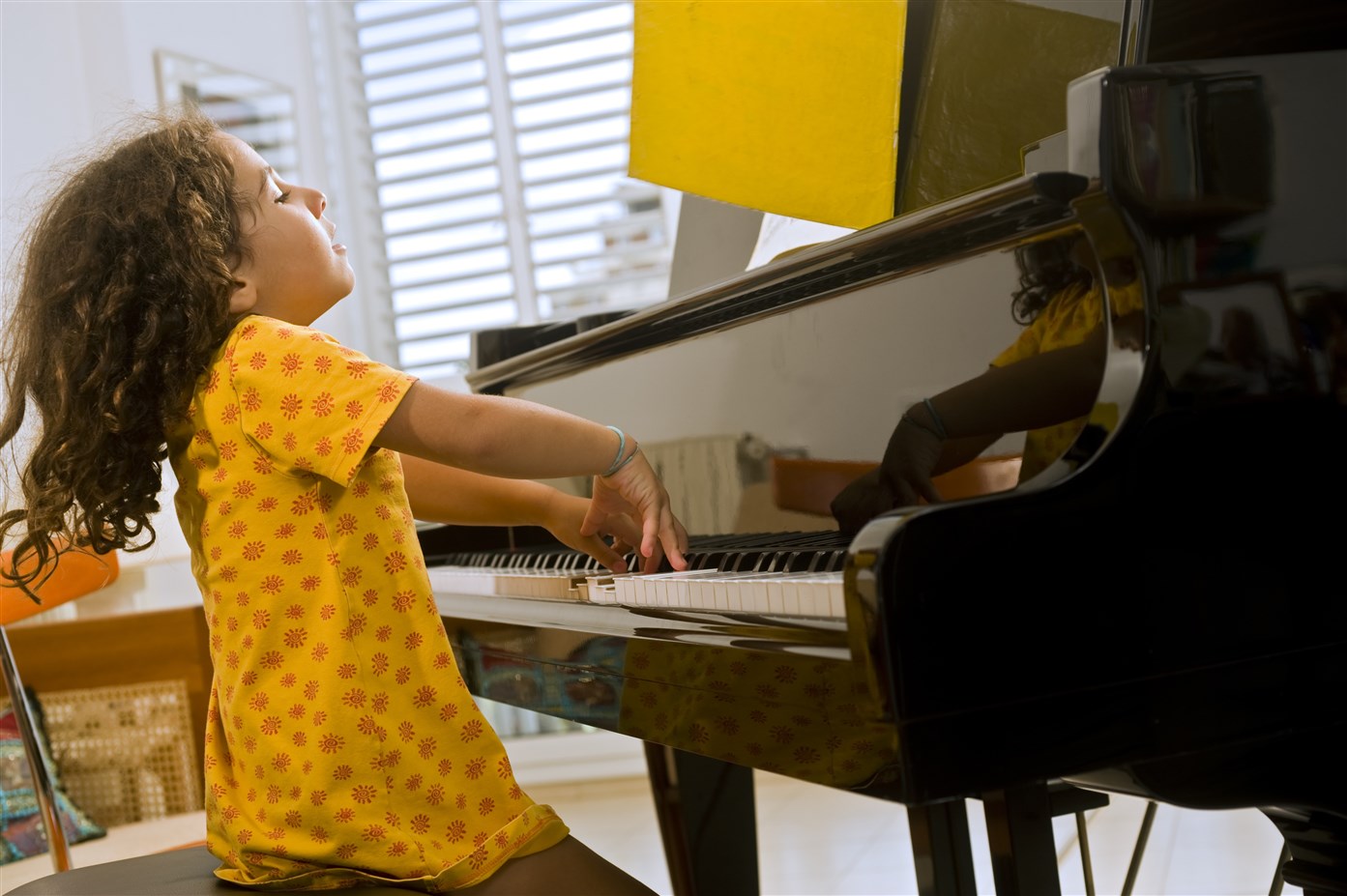
At Adventure In Music, we believe two things;
- All children should have an opportunity to learn music, and 2)
- Playing the piano cannot be enjoyed if one feels limited in their expression. It is from those two beliefs that we focus on;
- Teaching piano to beginners. Specifically to young children.
- Helping students to build a musical foundation that will release their ability to play what they feel and feel what they play.
We see the following as the elements of a solid musical foundation:
- A strong sense of pulse and rhythm. From the very beginning, we play games related to musical notes, and the length of the notes, and we create rhythms during the class. This may involve pre-written music or improvisations between the student and the teacher.
- An ability to sight-read. The ability of students will vary when it comes to sight-reading, but each child can become a competent sight-reader. Whether or not a child eventually pursues classical music, we believe sight-reading to be an essential skill because it unlocks a wealth of piano material that a pianist can engage with.
-
An ability to form chords and compose music. When a child leaves Adventure In Music, we would like them to be able to play two and three-note chords (triads) and 'string' those chords together to form chord progressions that sound musical. During the lessons, we introduce concepts that will allow the student to eventually be able to:
- recognize chords in the music they are assigned and
- makeup/compose songs using chord progressions.
- Fun. Children should enjoy learning, more so when it comes to music; therefore, we incorporate games in piano instruction. For example, if the day's lesson is about high notes on the piano, we may use the lion to represent the really low sounds and play a game where the child plays notes that sound as low as a lion's roar.
- A variety of styles is learned through the repertoire. Students will be exposed to different genres as they progress through their years of study. This will help them become more rounded musicians with a varied musical palette.
Following the foundation built at Adventure in Music, our hope is for students to become functional pianists who can read chord symbols and compose their own music should they desire. They should be able to do this while leaving the door open to pursuing the study of classical music should they desire to do so.
Parents are an integral part of the learning process at Adventure in Music. Part of the interview process involves explaining to parents what their role will be and the expectations we have of them. Children will have times where they are motivated to practice and to learn but they cannot succeed on their own. My role and their parent's role is to provide an atmosphere they can thrive in and then encourage follow-through.
Our general posture will not be to push students toward participating in competitions. However, each child is different, and if we identify a very competitive student who will be motivated by participating in these events, we will encourage them to do so.
The primary method book we use is Faber and Faber, especially for young beginners. Still, parents will find that we will use and assign music from other method books at different junctures of instruction.